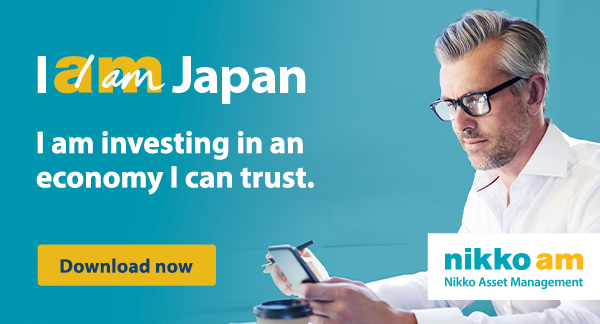Insights
Investment Insights by our experts and thought leaders
New Zealand Fixed Income Monthly (February 2025)
by , — 12 March, 2025
We believe that the Official Cash Rate’s projected path to the 3% level, which we consider likely to be the lowest point of the Reserve Bank of New Zealand’s current easing cycle, may be more noteworthy than the interest rate cut in February.
New Zealand Equity Monthly (February 2025)
by , — 11 March, 2025
February was a challenging month for New Zealand’s stock market following a weak corporate earnings season. Looking ahead, however, we remain confident about the market in 2025 and after. A key reason
for this is the interest rate cutting cycle by the Reserve Bank of New Zealand that is currently underway.
Navigating Japan Equities: Monthly Insights From Tokyo (March 2025)
by , — 10 March, 2025
We assess the factors behind the recent surge in Japan's long-term yields and its implications for equities; we also analyse the robustness of corporate earnings amid the structural economic changes
taking place.
Global Equity Quarterly (Q4 2024)
by — 06 March, 2025
Our focus on franchise and management quality allows us to look forward with optimism, whilst balance sheet quality and valuation discipline provide comfort for when the fireworks start for all the
wrong reasons.
Sustaining the future: the ongoing case for sustainable bonds
by , — 05 March, 2025
Despite a retreat from sustainability initiatives in the US, the sustainable bond market, particularly green bonds, remains strong globally due to continued investor demand, attractive bond yields and
increasing participation from countries like Japan.
Balancing Act Monthly Insights: Global Multi-Asset (February 2025)
by — 27 February, 2025
For January, we reduced our overweight position in growth while maintaining our overweight position in defensives. With respect to growth assets, Trump's second presidency ushers in a new era of US
exceptionalism which has implications on the rest of the global markets.
What the return of interest rates means for Japan
by , — 26 February, 2025
In January, the Bank of Japan raised short-term interest rates to 0.5%, the highest level seen in 17 years, as it continued with its slow but steady withdrawal of accommodation. As the Japanese economy shows ongoing signals of recovery from decades of stagnation, we assess the impact the return of interest rates could have on the country’s households, firms and government.
The Indian healthcare sector is projected to become one of the top global markets by 2030, driven by demographic changes, rising incomes, and expanding insurance coverage, presenting long-term investment opportunities.
Harnessing Change-Monthly Insights: Asian Equity (January 2025)
by — 25 February, 2025
We believe the introduction of DeepSeek may cause a recalibration of capital expenditures. Its introduction has initiated a shift towards a more cost efficient, scalable, and accessible AI landscape.
On the Ground in Asia-Monthly Insights: Asian Fixed Income (January 2025)
by — 21 February, 2025
We see Asian local government bonds being supported by accommodative central banks amid an environment of benign inflation and moderating growth. Within the region, we expect investor appetite for
higher carry bonds such as those of Malaysia, Indonesia and the Philippines to stay firm relative to their regional peers.
A year later: five reasons we're still bullish on Japan
by , — 20 February, 2025
In March 2024, after the Nikkei Index reached an all-time high, we offered five structural reasons why Japan's economic resurgence was more than just a flash in the pan. Almost a year later, those
five reasons remain just as relevant for investors considering an allocation to Japan.
The speed at which AI applications are becoming part and parcel of daily life is breathtaking, with DeepSeek's apparent breakthrough merely accelerating an inevitable, fundamental change in the field.
We firmly believe these breakthroughs are the key components needed for sustainable, long-term returns.
New Zealand Equity Monthly (January 2025)
by , — 13 February, 2025
The New Zealand equity market paused for breath and dipped in January after posting significant gains towards the end of 2024. Some of the market’s decline reflected a dent in enthusiasm for
consumer-facing and cyclical stocks. Global market jitters also appeared to have an impact with disruption risk coming to the fore.
New Zealand Fixed Income Monthly (January 2025)
by , — 12 February, 2025
Although the arrival of a new year has brought some optimism after a tough 2024, economic activity remains subdued in New Zealand. The Reserve Bank of New Zealand may further cut interest rates in
2025 with global uncertainties impacting the country's economy.
Navigating Japan Equities: Monthly Insights From Tokyo (February 2025)
by , — 07 February, 2025
This month we discuss signs of improvement in the Bank of Japan (BOJ)'s market communication following its recent rate hike; we also focus on Japan's economic resilience amid a flurry of trade-related
headlines impacting the markets.
Balancing Act: Global Multi-Asset Quarterly (Q4 2024)
by — 05 February, 2025
In the 2024 October-December quarter, risk assets largely moved in line with expectations surrounding the US presidential election. We maintained an overweight position on growth assets over the
quarter amid indications of resilient economic conditions. Our view of defensives improved with higher yields having made this group of asset classes more attractive.
The Fed takes a leaf from the BOJ’s book and applies gradualism
by , — 30 January, 2025
The Federal Reserve is seemingly following in the footsteps of the Bank of Japan and adopting a strategy of monetary policy gradualism. This measured approach is aimed at balancing rate cuts with inflation expectations and stabilising the economy without triggering price volatility.
Balancing Act Monthly Insights: Global Multi-Asset (January 2025)
by — 29 January, 2025
We retained our positive view on growth on resilient economic data and dovish monetary policies globally as inflation is now closer to central bank targets worldwide. Our view of defensives improved
as higher yields now make the asset class marginally more attractive.
BOJ hikes amid trade uncertainty: focus on AI’s indirect role in risk reduction
by , — 27 January, 2025
The BOJ increased overnight rates by 25 basis points, raising the Mutan call rate to its highest since 2008. The decision reflects the BOJ's belief that the economy is performing in line with its
view, with positive real wage growth and an upgraded near-term inflation outlook. Uncertainty over US tariffs persists, but Japan's need for AI-related technologies may play an indirect role in
reducing trade-related risks.
How Japan can safeguard against US tariffs
by , — 16 January, 2025
The future of US policy is surrounded by great uncertainty, particularly regarding tariff measures that the US may impose upon its trading partners. We explore options that are available to Japan to
safeguard against tariffs the US may decide to implement.
Harnessing Change-Monthly Insights: Asian Equity (December 2024)
by — 16 January, 2025
Despite concerns about Donald Trump's impact on emerging markets, historical data shows that during his first term as US president, China, South Korea and Taiwan outperformed the S&P 500 although they
are the most trade-sensitive equity markets.
On the Ground in Asia-Monthly Insights: Asian Fixed Income (December 2024)
by — 15 January, 2025
We expect Asian local government bonds to perform well in 2025, supported by accommodative central banks amid an environment of benign inflation and moderating growth. The ongoing global easing cycle is expected to lower global yields, further supporting Asian bond markets.
Politics, governance reform and engagement opportunities in Japan equities
by , — 14 January, 2025
Following the surprise result of the snap election in October 2024, Japanese politics has entered a very unique phase. We discuss how the fluid political situation could positively impact the Japanese
market, which is already feeling the benefits of corporate governance reform, and assess how engagement could play a role in improving shareholder returns in such an environment.
Navigating Japan Equities: Monthly Insights From Tokyo (January 2025)
by , — 10 January, 2025
This month we discuss how a rise in delistings reflects efforts to create a more attractive equity market; we also assess ways in which a merger by large automakers in Japan could stimulate reforms
beyond the industry.
Balancing Act Monthly Insights: Global Multi-Asset (December 2024)
by — 26 December, 2024
We retain our positive view on growth on resilient economic data and dovish monetary policies globally as inflation starts to ease worldwide. As for defensives, sovereign bond curves are steepening
amid the beginning of the global rate-cutting cycle and bonds are gradually becoming more attractive.






























